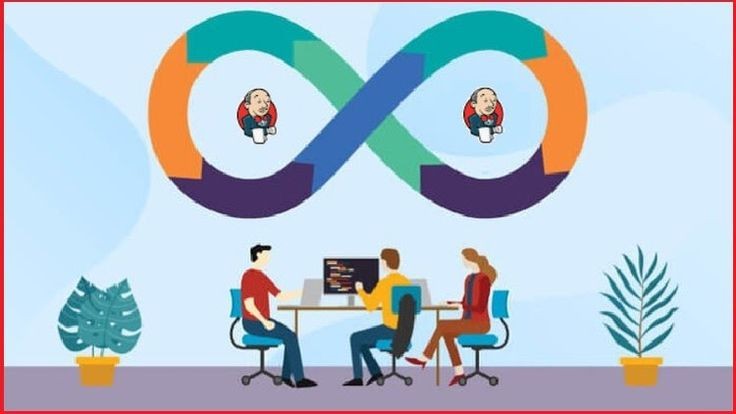6 (Six) Differences Between Programmer And Software Engineer

A programmer, also known as a coder or developer, is a professional who specializes in writing computer programs or software applications. Programmers are proficient in programming languages and use their skills to translate requirements into code that computers can understand and execute. They analyze problems, design solutions, write code, and often collaborate with other team members to develop software solutions. Programmers play a crucial role in the development process, focusing on the technical implementation of software functionalities and ensuring the code's reliability and efficiency.
WHILE
A software engineer is a professional involved in the design, development, and maintenance of software systems. They possess a broad range of technical skills and knowledge, including programming languages, software architecture, algorithms, and project management. Software engineers analyze requirements, design software solutions, write code, conduct testing, and ensure the software meets quality standards. They take a systematic and disciplined approach to software development, considering factors such as scalability, maintainability, and security. Software engineers also collaborate with stakeholders, contribute to decision-making processes, and address complex technical challenges. Their expertise extends beyond coding, encompassing the entire software development lifecycle to create reliable and efficient software solutions.
However, please note that the terms programmer and software engineer can vary in meaning and usage depending on context and individual perspectives. Here are six distinctions that are commonly discussed:
6 (Six) Differences Between Programmer And Software Engineer:
- Skillset and scope
- Level of Abstraction
- Problem Solving and Creativity
- Collaboration and Interaction
- Professional Development and Education
- Career Advancement
1. Skillset and Scope:
Programmers primarily focus on writing code to create software solutions. They specialize in programming languages, algorithms, and data structures to translate requirements into functioning applications. They are often adept at implementing pre-defined designs and following best coding practices.
Software engineers, on the other hand, possess a broader skillset. In addition to programming, they are involved in the entire software development lifecycle. They work on requirements analysis, system design, project management, testing, maintenance, and documentation. Software engineers tackle complex problems and take a holistic approach to building reliable and scalable software systems.
2. Level of Abstraction:
READ ALSO » 5 Beginner Mistakes To Avoid As A Self-taught Programmer
Programmers typically work at a lower level of abstraction, focusing on the detailed implementation of specific functions or features. They often deal with more specific tasks, such as writing code to solve a particular problem or implementing a defined set of functionalities.
Software engineers operate at a higher level of abstraction. They consider the bigger picture beyond individual tasks and understand how the software fits into the larger system. They design the structure, architecture, and overall organization of the software, considering factors like scalability, robustness, and maintainability.
3. Problem Solving and Creativity:
Both programmers and software engineers engage in problem-solving. However, programmers often apply existing knowledge and commonly-used techniques to tackle known issues. Their work is centered around efficiently implementing solutions based on established programming patterns and practices.
Software engineers, on the other hand, face more complex challenges that demand creativity and innovation. They are expected to devise unique solutions when faced with novel problems or when standard approaches aren't sufficient. They strive to bridge the gap between theoretical models and practical software by utilizing their engineering mindset.
4. Collaboration and Interaction:
Programmers often work in teams under the guidance of software engineers or project managers. They primarily concentrate on their individual tasks, contributing to the codebase and ensuring functionality. They may have limited communication with other stakeholders or clients unless specifically required.
Software engineers work closely with various stakeholders, including clients, managers, product owners, and designers. They provide insights and contribute to the decision-making process, considering both technical and non-technical aspects. They have a more comprehensive understanding of the project's goals and are responsible for coordinating efforts across the development team.
5. Professional Development and Education:
Programmers typically acquire the necessary skills through coding boot camps, self-study, online tutorials, or college courses focused on programming languages and specific technical skills. They often focus on mastering a particular programming language or technology stack.
READ ALSO » 5 Ways To Earn Money As A Programmer
Software engineers, while also proficient in programming, generally possess a broader educational and professional background. They often hold a degree in software engineering, computer science, or a related field. Their education encompasses a wider range of topics, including software development methodologies, system architecture, algorithm design, and project management. Their training allows them to approach software engineering from a more comprehensive perspective.
6. Career Advancement:
While both programmers and software engineers have growth opportunities, the progression paths may differ. Programmers typically advance by gaining expertise in specific languages or frameworks and becoming subject matter experts in those areas. They may take on leadership roles within development teams or specialize in niche domains.
Software engineers, on the other hand, have a broader career trajectory. As they gather experience and expertise, they often transition into roles such as technical leads, architects, project managers, or even move into executive positions. Software engineers can utilize their extensive understanding of the software development process to contribute to high-level strategic decisions.
